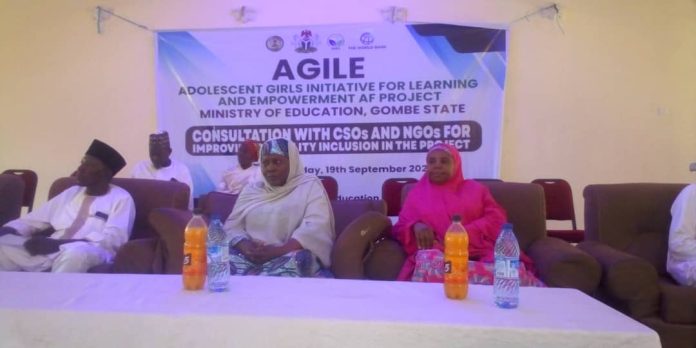By Rabilu Abubakar, Gombe
In a significant step towards fostering a more inclusive society, the Adolescent Girls Initiative for Learning and Empowerment (AGILE) in Gombe State has engaged Civil Society Organizations (CSOs) and Non-Governmental Organizations (NGOs) in a strategic consultation aimed at strengthening disability inclusion in its programs. The meeting, which took place on Thursday, brought together a broad range of stakeholders committed to improving educational and economic opportunities for persons with disabilities, particularly young girls and women.
The consultation, led by the Gombe State coordinator of AGILE, Dr. Amina Haruna Abdul, provided a platform for key players in the civil society space to offer insights and recommendations on how AGILE can better serve marginalized groups. Dr. Abdul, in her opening remarks, emphasized the critical role of stakeholder input in shaping the initiative’s approach to inclusion, especially in the areas of education and economic empowerment.
“AGILE is committed to ensuring that our programs are accessible and beneficial to everyone, regardless of ability,” Dr. Abdul said. “We understand that people with disabilities, particularly girls and women, face significant barriers, and today’s meeting is a crucial step in addressing those challenges by gathering actionable recommendations from key stakeholders.”
Building a More Inclusive Future for Girls with Disabilities
The Adolescent Girls Initiative for Learning and Empowerment (AGILE), a project focused on promoting education and empowerment for adolescent girls across Nigeria, has been a driving force behind efforts to increase school enrollment, reduce drop-out rates, and improve the overall quality of life for young women. However, as Dr. Abdul pointed out during the meeting, there remains a significant gap in the inclusion of persons with disabilities within the program, particularly girls.
The consultation highlighted the pressing need for AGILE to tailor its programs to accommodate the specific needs of girls with disabilities. Participants stressed that young women with physical, sensory, and cognitive disabilities often face dual layers of discrimination—both because of their gender and their disabilities—which limit their access to education and economic opportunities.
Dr. Abdul acknowledged these concerns and assured the participants that their feedback would be instrumental in shaping the future of AGILE’s work in Gombe State. “Your input today is not just valuable; it’s essential,” she said. “We are here to listen, to learn, and to ensure that our programs leave no one behind. Our commitment to inclusion is unwavering, and we will incorporate your insights into our work plans.”
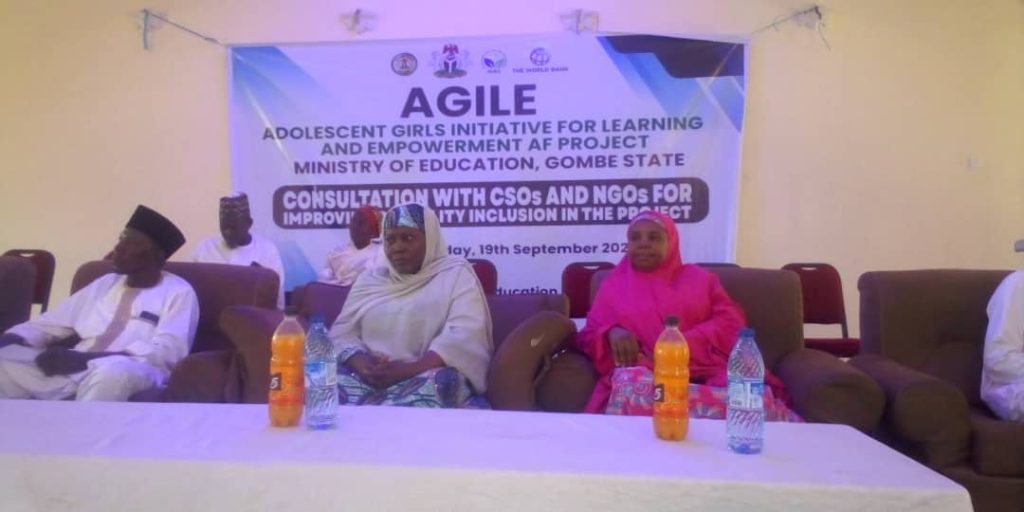
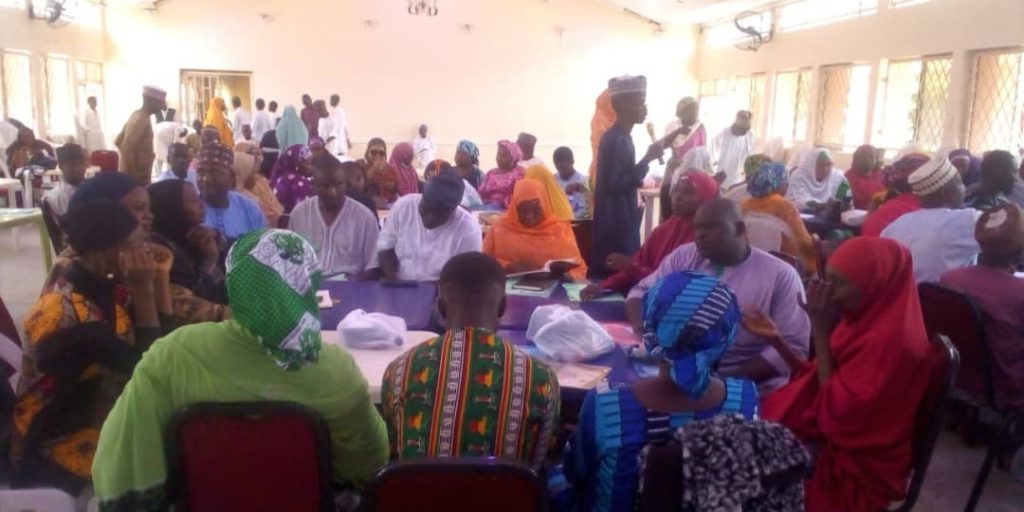
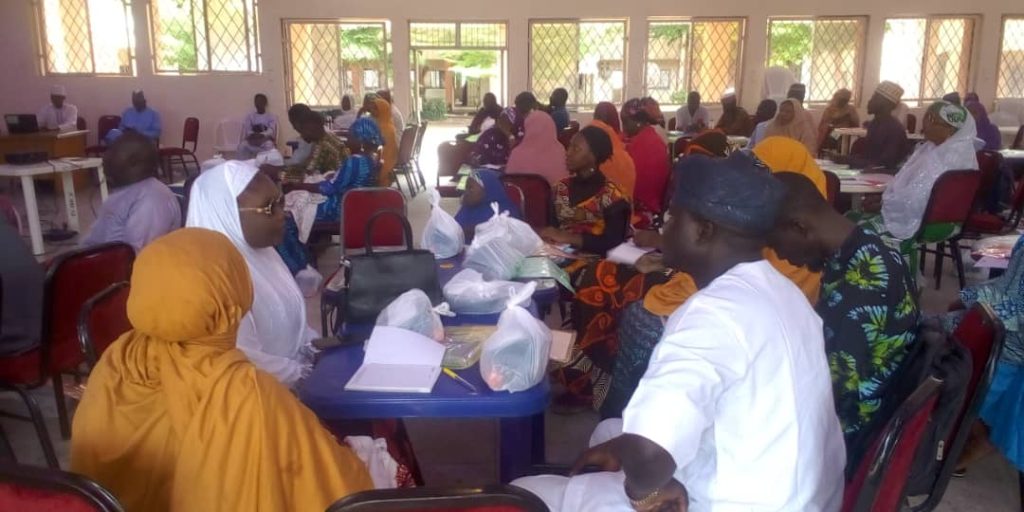
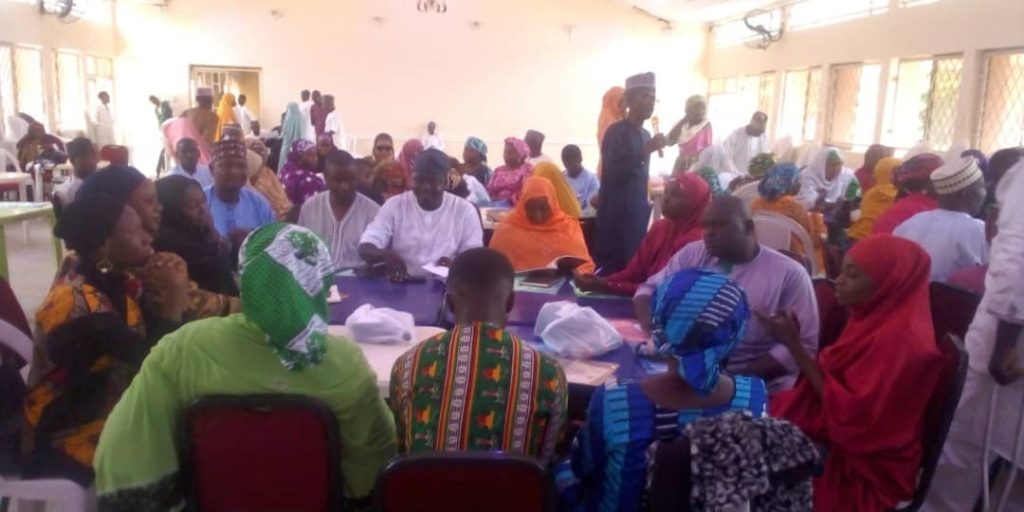
Tackling Barriers to Education for Girls
One of the key issues raised during the meeting was the widespread use of adolescent girls, particularly those from disadvantaged backgrounds, as farm laborers in rural communities. This practice, according to Dr. Abdul, is a significant obstacle to education for many girls in the state. Instead of attending school, many girls are forced to work on family farms, which limits their educational prospects and, in the long term, perpetuates cycles of poverty.
“Girls are often pulled out of school to help with farm work, especially during peak agricultural seasons,” Dr. Abdul explained. “This practice is deeply rooted in many communities, but it has devastating consequences for the future of these girls. If we are to achieve meaningful progress in female education, we must address this issue head-on.”
Dr. Abdul’s remarks were echoed by several participants at the meeting, who called for stronger advocacy efforts to change cultural norms that prioritize labor over education for girls. They also urged AGILE to explore alternative economic support systems for families, such as conditional cash transfers or community-based vocational training, to reduce the reliance on child labor.
Voices of People with Disabilities: Calls for Greater Representation
A major highlight of the consultation was the active participation of individuals with disabilities, many of whom shared their personal experiences and challenges in accessing education and economic empowerment programs. Their voices underscored the need for greater representation and inclusion in AGILE’s initiatives, particularly for females with disabilities who often face compounded discrimination.
Participants pointed out that women and girls with disabilities are frequently overlooked in development programs, despite being among the most vulnerable populations. They called on AGILE to make a deliberate effort to include them in its empowerment programs, not just as beneficiaries but also as decision-makers and leaders.
One speaker, a young woman with a visual impairment, passionately addressed the need for disability-inclusive education. “We are often seen as incapable, but we are not,” she said. “Many of us have dreams and aspirations, but without access to education and opportunities, those dreams remain out of reach. AGILE has the power to change that, and we are counting on you to make sure that girls like me are not forgotten.”
Economic Empowerment as a Pathway to Education
The conversation also touched on the importance of economic empowerment as a means to increase school enrollment for girls with disabilities. Several participants argued that poverty is one of the primary reasons why many girls with disabilities are unable to attend school. By providing economic support to families, AGILE could help alleviate some of the financial pressures that prevent these girls from pursuing an education.
“Economic empowerment is key,” one participant noted. “When families are financially secure, they are less likely to pull their daughters out of school to work. For girls with disabilities, who already face so many barriers, economic support could make all the difference in whether they go to school or not.”
Participants urged AGILE to prioritize vocational training, entrepreneurship programs, and financial literacy initiatives that are specifically tailored to the needs of females with disabilities. They also recommended partnerships with local businesses and microfinance institutions to create job opportunities for women with disabilities, allowing them to contribute economically to their households while pursuing education.
A Commitment to Inclusive Development
As the consultation drew to a close, Dr. Abdul reiterated AGILE’s commitment to inclusive development and pledged to take concrete steps towards integrating the feedback received into the initiative’s future programs. She also assured participants that AGILE would continue to engage with CSOs, NGOs, and individuals with disabilities to ensure that their voices remain at the forefront of decision-making processes.
“This meeting is just the beginning,” Dr. Abdul said. “We will continue to consult with you as we move forward, and we will work together to create a Gombe State where all girls, regardless of their abilities, have access to the education and empowerment they deserve.”
The consultation marks a pivotal moment in AGILE’s efforts to enhance disability inclusion in Gombe State. With the active involvement of CSOs, NGOs, and the disability community, there is hope that the initiative will become a model for inclusive development, not just in Gombe, but across Nigeria.
For the women and girls with disabilities in the state, the future now holds the promise of greater representation, increased opportunities, and a more inclusive society where their rights and aspirations are fully recognized and supported.

